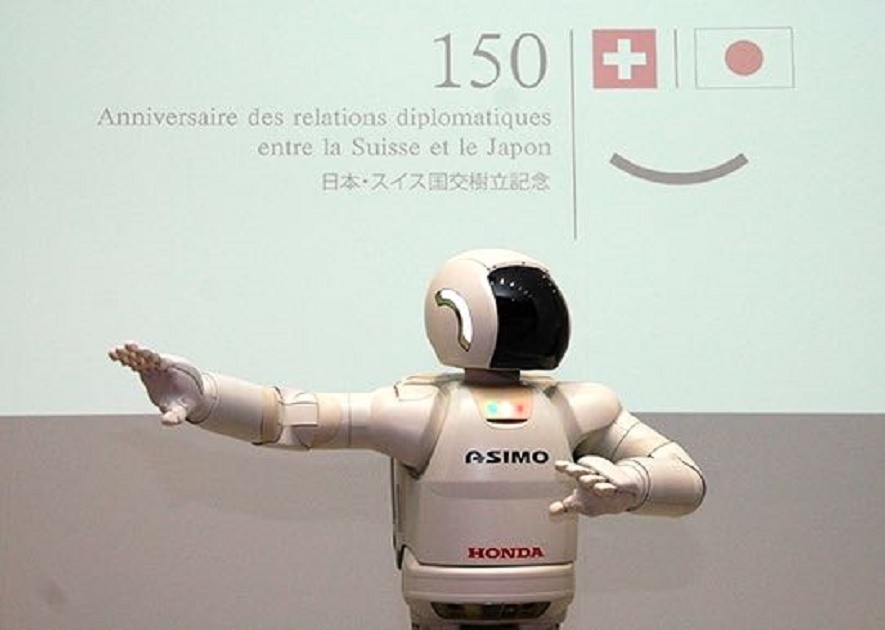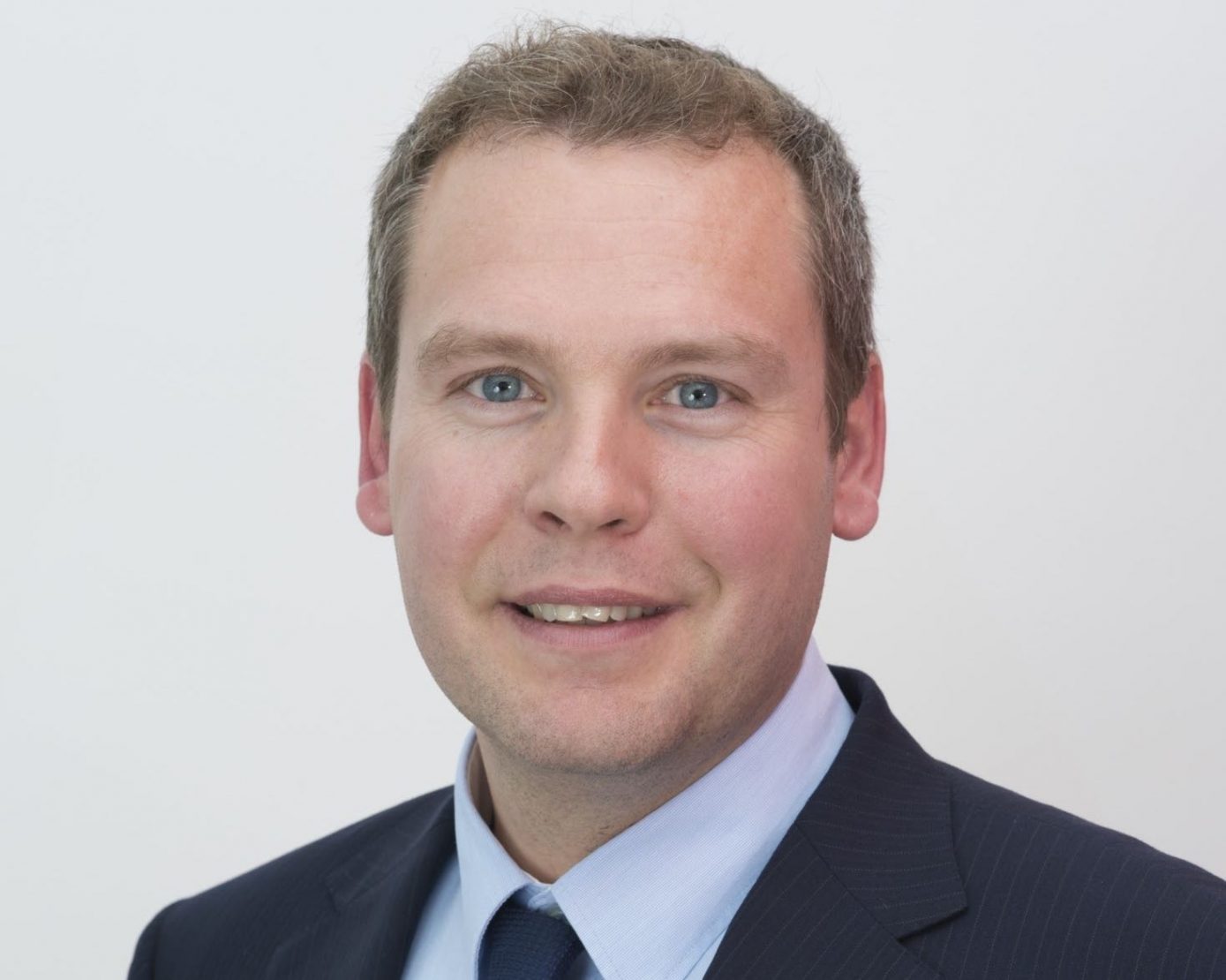Tokyo (SCCIJ) – Dr. Thomas Meyer, the new head of the Science and Technology Office Tokyo (STOT) at the Embassy of Switzerland in Japan, plans to strengthen the communication channels of his office to facilitate exchanges between Japan and Switzerland in the realm of education, research and innovation. Dr. Meyer, a long-time IT professional, also banks on internships for Swiss students and researchers in Japanese companies to expand bilateral collaborations. The SCCIJ talked to Dr. Meyer who is also an advisor to the SCCIJ Executive Committee about his motivation to become STOT head, his first experiences in Japan compared to his former base Singapore and business opportunities for Swiss companies in the field of information technology in Japan.
Dr. Meyer, you are a computer scientist by education and spent most of your professional career as a consultant and manager in the IT field. What motivated you to become a representative of the Swiss government?
Dr. Thomas Meyer: Science and technology are my passions. Already in my previous job as a consultant, I was fascinated by my many opportunities to look into different industries. Here at the Science & Technology Office Tokyo, we get a good insight into universities, startups and companies leading in technology. In addition, the job at the embassy allows me to build up an excellent network in both Japan, Switzerland and many other countries through science and technology diplomatic circles.

Robot help for the STOT
You are now nine months into the new job – how do you compare your expectations and experiences?
Dr. Thomas Meyer: Before making the decision to come to Japan, I had an intensive exchange with my predecessor, which I appreciated a lot. Therefore, I did not encounter any special surprises. Of course, coming from an IT consulting world, I see that the maturity of government organizations in terms of processes, project management, knowledge management or IT infrastructure is not on the same level as in private companies, which can be frustrating. Nevertheless, I am happy with our team and the collaboration with other departments at the embassy.
As STOT head, where do you see chances for Swiss-Japanese cooperation and also business opportunities for Swiss companies in Japan?
Dr. Thomas Meyer: I believe doing business in Japan can be more favorable than doing business in some other Asian countries. Generally speaking, in Japan, quality is perceived as more important than just a low price; intellectual property rights and business contracts are well respected; the market is less competitive than for example in Hong Kong or in Singapore, and not to forget, Japan is still the world’s 3rd largest economy.

Dr. Thomas Meyer, new head of the Science & Technology Office at the Embassy of Switzerland, Japan
You are a computer specialist and worked for a long time in IT. In the past, Japan was very successful in computer chips and consumer electronics. How do you rate Japan today as an “IT nation”?
Dr. Thomas Meyer: Japan is strong in hardware, robotics, physics, medical technology, but seems to be underdeveloped in software and digitalization. Many companies, even the Swiss embassy, still use many paper-based processes. Opening a new bank account in Singapore took me 30 minutes, all based on e-documents and electronic signatures. Here in Japan, opening a bank account and applying for a mobile contract takes weeks to months for a foreigner to be completed, and all is still paper-based and in Japanese forms only. Here, I see a huge potential for companies that are strong in (robotic) process automation.
Before coming to Japan at the end of last year, you were based in Singapore and running the Asia-Pacific business of a Swiss IT consultancy company. Was there a particular attraction of Tokyo compared to Singapore which also influenced your decision to switch your job?
Dr. Thomas Meyer: Tokyo and Singapore are quite different, but for me both places are attractive places to live, not only because they are both very safe and clean places. While Singapore is relatively small, international and very convenient to live, Tokyo is huge with lots of activities to do. However, English communication in Japan is still quite a challenge in daily life.
This is a fact which surprises many foreigners. Do you have any explanation?
Dr. Thomas Meyer: Japan is a true island, not only geographically, but also culturally. Japan has only 2% foreigners. The market is large enough for most Japanese companies to focus on Japan only. I think this explains why English is still quite a challenge when collaborating with Japanese institutions. In my opinion, this is one of the main reasons why the local market is still quite protected. Switzerland may be similar in this regard where it is also preferable to speak the local language when doing business with small and medium enterprises.
Singapore has taken a different economic approach than Japan. When you compare, whose model has been more effective?
Dr. Thomas Meyer: By making English one of its national languages, Singapore has attracted a lot of foreign companies and talents. But recently, there is an ongoing discussion about foreigners taking the jobs of locals. Also, Singapore makes it easy for new companies to enter the market. This leads to more competition and therefore lower margins, unless you are truly unique or manage to position yourself in a niche market. For example, in the IT service business, competition is extremely tough, especially for Swiss companies that are not specialized in certain technologies or domains.
On the other hand, there are worries about demography, aging and population shrinkage in Japan. Do you think this impedes business opportunities?
Dr. Thomas Meyer: The realization of Society 5.0 (which is more or less the equivalent to Industry 4.0 in Europe) is one of the key development areas in the coming years in Japan. This will generate a huge demand for skilled IT labor and services. Already now, there is a big lack of skilled IT professionals in Japan. This will even worsen and create opportunities for foreign service providers. Also the aging population is a big challenge here. However, it also generates new business opportunities, not only in the medical technology area, but also in automation. For example, in the agricultural sector, 60% of farmers are over 65 years old, and only 10% of farmers less than 45 years old. Currently, there are a lot of development activities in automation using drones and robots.
The SCCIJ is supporting a scholarship fund for young Swiss who want to learn the language and experience Japan through internships. What do you think about this project?
Dr. Thomas Meyer: This excellent endeavor matches our own interests because one of my goals is to open more Japanese doors for Swiss researchers. For that reason, we are looking for Japanese companies that are open to receive Swiss students for internship positions, and at the same time, we try to motivate Swiss students to get experience in Japan. I believe that such internships have a long-term, high impact on the relations between Japan and Switzerland, and at the same time, it comes with a relatively low effort for our limited resources.
About Dr. Thomas Meyer
Dr. Thomas Meyer is the Head of the Science & Technology Office at the Embassy of Switzerland in Japan, which facilitates and promotes the exchange between Switzerland and Japan in the fields of Education, Research and Innovation. Thomas Meyer holds a Master’s and PhD degree from the Swiss Federal Institute of Technology (ETH Zürich), and a MBA degree from the China Europe Intl. Business School (CEIBS). Prior to his appointment as the Head of the Science & Technology Office, he was the APAC managing director of a Swiss IT consulting company in Singapore. Before that, he served several international companies in the field of research and innovation. His main interests are entrepreneurship, innovation and technology management.
Interview: Martin Fritz for SCCIJ; Photos: STOT/Thomas Meyer





























